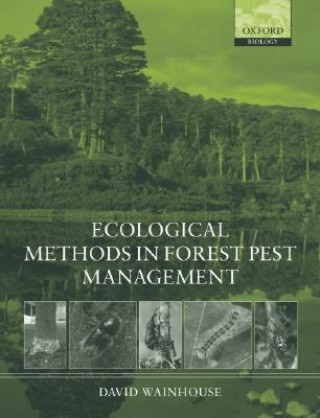
Kézbesítés
Vásárlási tanácsadó





Nem vált be? Semmi gond! Nálunk 30 napon belül visszaküldheti
 Ajándékutalvány
bármilyen értékben
Ajándékutalvány
bármilyen értékben
Ajándékutalvánnyal nem nyúlhat mellé. A megajándékozott az ajándékutalványért bármit választhat kínálatunkból.
Ecological Methods in Forest Pest Management
 Angol
Angol
 407 b
407 b
30 nap a termék visszaküldésére
Ezt is ajánljuk


This book is about the management of forest pests. It focuses predominantly on insect pests, but many examples relate to fungal pathogens, some of which are vectored by forest insects. The central theme of the book is the development of Integrated Pest Management (IPM), the main impetus for which comes from the need to use environmentally sensitive methods of control appropriate to both semi-natural and plantation forests. Such forests are likely to be managed not only for timber production but also for recreation and to enhance biodiversity. An introductory chapter describes how forests have been transformed by exploitation and management and how altering the composition and distribution of forests can contribute to pest problems. Subsequent chapters focus on the 'techniques' of management and control that contribute to IPM, considering in turn plant health, risk-rating, silviculture, tree resistance, biological control, microbial control and semiochemicals. By focussing on these important elements of management, the aim is to provide a critical analysis of the theory and practice of each one in relation to key aspects of both pest and forest ecology. The final chapter on IPM brings together elements of the previous chapters, discussing them in the context of the economic and environmental impact of pests, the economics of control, and the role of decision support systems. Detailed case studies are provided and future developments in IPM discussed in relation to sustainability, conservation and the potential impact of climate change.
Információ a könyvről
 Angol
Angol




 Hogyan vásároljunk
Hogyan vásároljunk
























